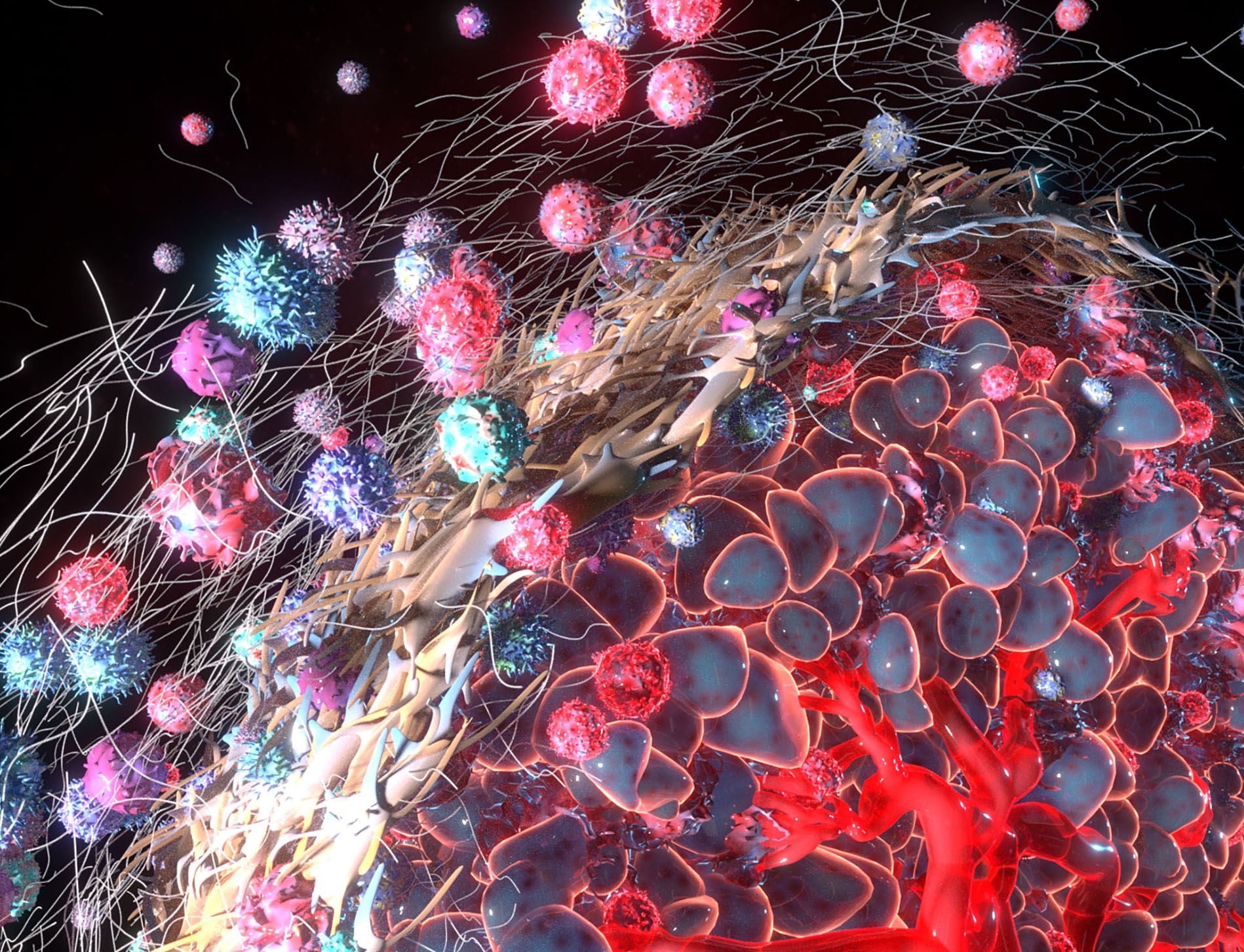Fibroblasts are responsible for creating and maintaining the extracellular matrix that normally supports all the connective tissues. Tumors have the ability to recruit fibroblasts (Cancer Associated Fibroblasts (CAFs)) that develop a fibrotic microenvironment that supports their growth while protecting them from the immune system. This fibroblast-generated scar tissue is associated with the reduced efficiency of chemotherapies and poor outcome of treatment.
A new publication in Nature Cancer provides evidence that reducing scar tissue with the PXS-5505 small molecule inhibitor can help to treat pancreatic cancer by making it more accessible to chemotherapy treatment. PXS-5505 is an inhibitor of the lysyl oxidase family of enzymes which causes collagen to build up around tumors creating fibrotic scar tissue that acts as a barrier inhibiting the access of chemotherapy agents. The study offers exciting evidence that therapeutic strategies that involve the targeting of tumor-associated stroma can offer several benefits to the treatment of cancer including improved chemotherapy responses, reduced metastatic burden and more importantly prolonged survival.
Read the full article in Nature Cancer

